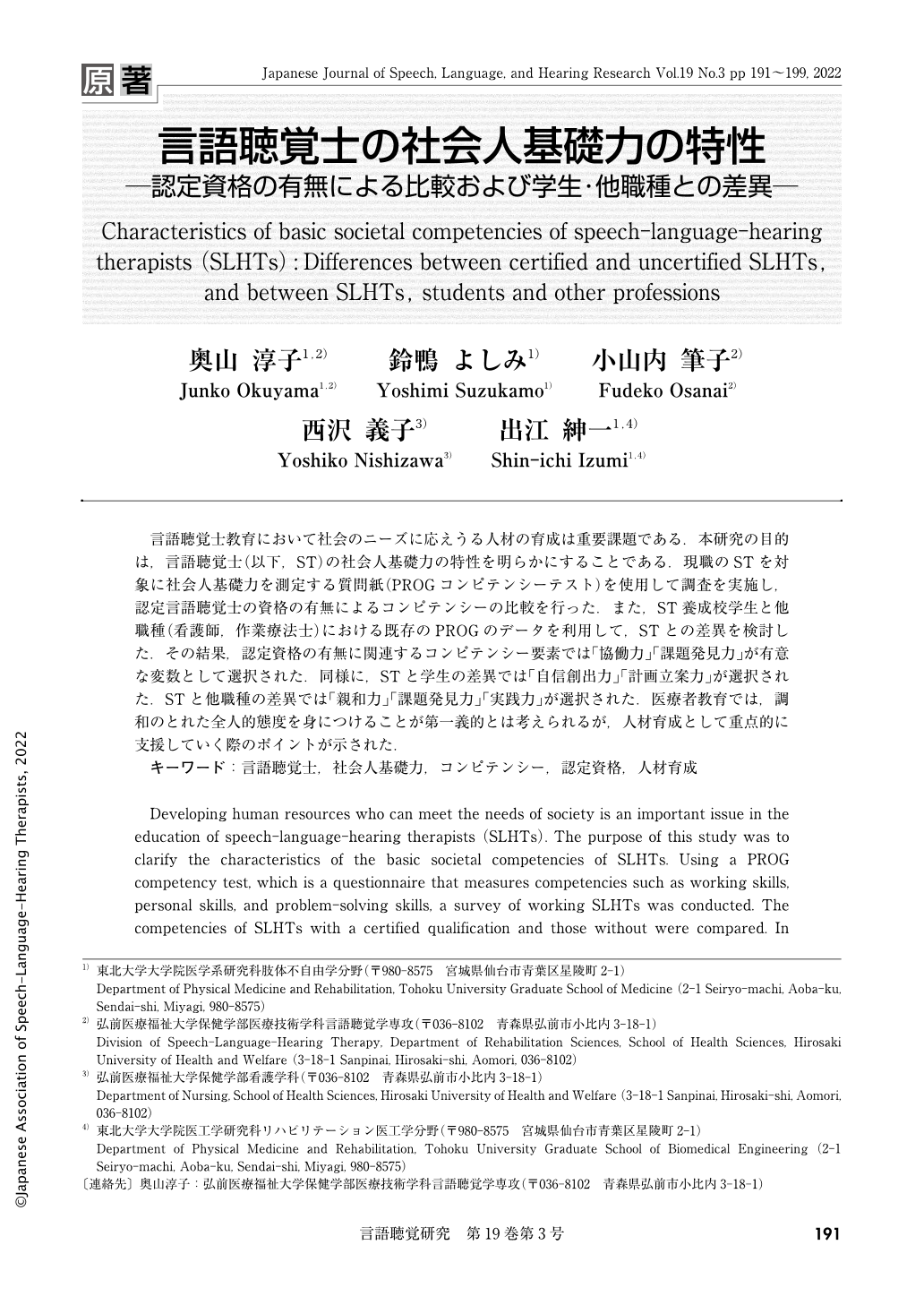Japanese
English
- 有料閲覧
- Abstract 文献概要
- 1ページ目 Look Inside
- 参考文献 Reference
言語聴覚士教育において社会のニーズに応えうる人材の育成は重要課題である.本研究の目的は,言語聴覚士(以下,ST)の社会人基礎力の特性を明らかにすることである.現職のSTを対象に社会人基礎力を測定する質問紙(PROGコンピテンシーテスト)を使用して調査を実施し,認定言語聴覚士の資格の有無によるコンピテンシーの比較を行った.また,ST養成校学生と他職種(看護師,作業療法士)における既存のPROGのデータを利用して,STとの差異を検討した.その結果,認定資格の有無に関連するコンピテンシー要素では「協働力」「課題発見力」が有意な変数として選択された.同様に,STと学生の差異では「自信創出力」「計画立案力」が選択された.STと他職種の差異では「親和力」「課題発見力」「実践力」が選択された.医療者教育では,調和のとれた全人的態度を身につけることが第一義的とは考えられるが,人材育成として重点的に支援していく際のポイントが示された.
Developing human resources who can meet the needs of society is an important issue in the education of speech-language-hearing therapists (SLHTs). The purpose of this study was to clarify the characteristics of the basic societal competencies of SLHTs. Using a PROG competency test, which is a questionnaire that measures competencies such as working skills, personal skills, and problem-solving skills, a survey of working SLHTs was conducted. The competencies of SLHTs with a certified qualification and those without were compared. In addition, these competencies were compared with existing data obtained from SLHT-students and other professions, specifically nurses and occupational therapists. SLHTs with a certified qualification scored significantly higher in “collaborating with others” and “problem identification” than those without a certified qualification. “self-confidence” and “planning solutions” were the significant variables differentiating SLHTs from students. Between SLHTs and other professions, “relating with others”, “problem identification”, and “implementing solutions” were selected as significant variables. Although the primary goal of medical education is to develop medical personnel with a harmonious and holistic attitude, our research reveals several points to focus on when developing such individuals.

Copyright © 2022, Japanese Association of Speech-Language-Hearing Therapists. All rights reserved.


